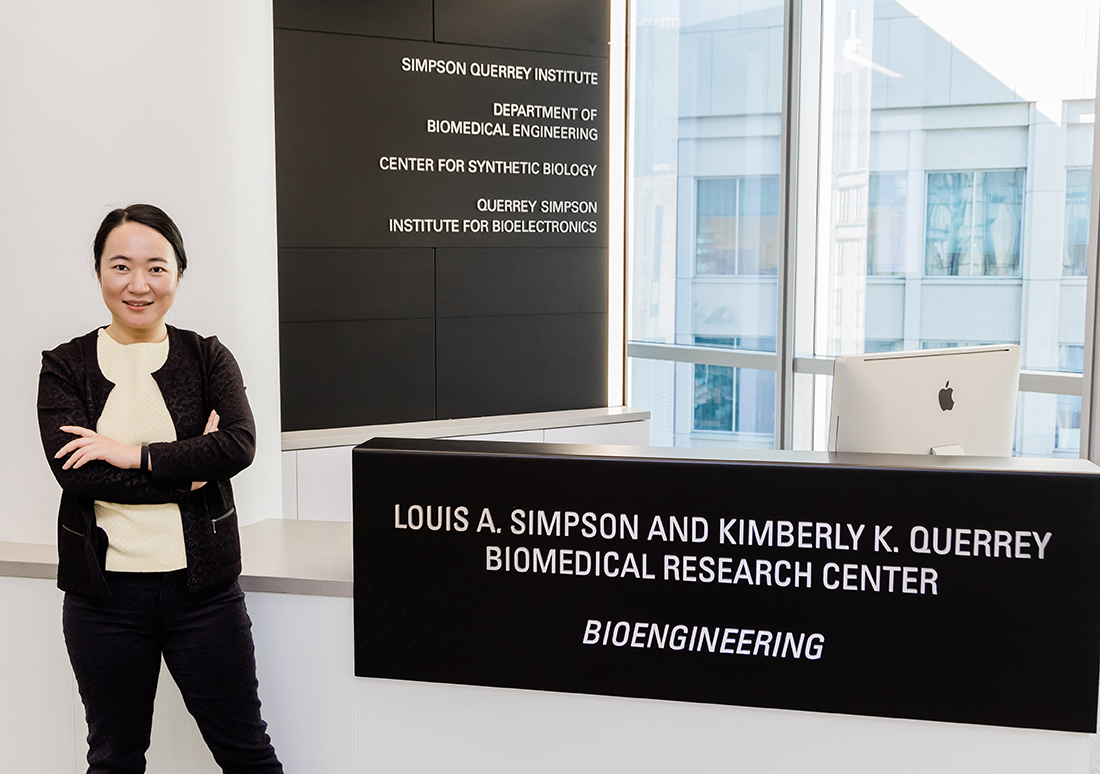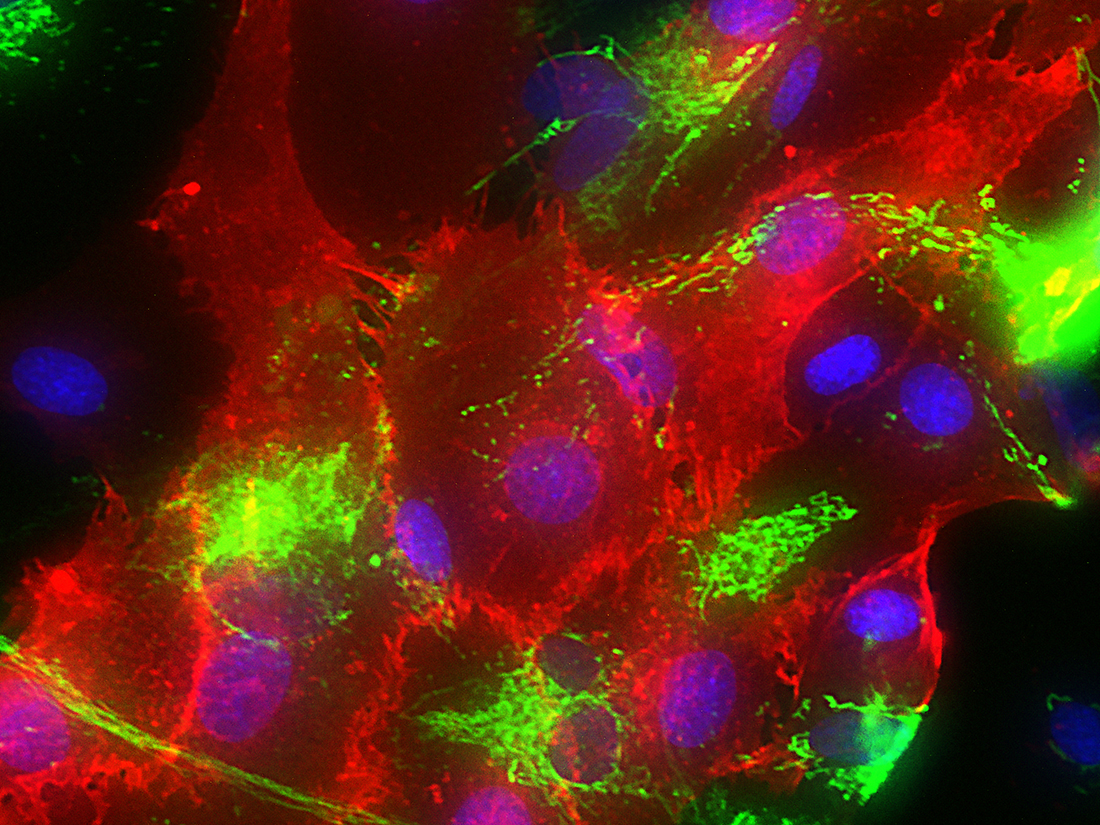Gift Uplifts Research into Mitochondrial Regeneration for Precision Vascular Health
This story was published in the September 2024 issue of The Philanthropist, a newsletter for supporters and friends of Northwestern University Feinberg School of Medicine. Read past issues here.

Bin Jiang, PhD, an assistant professor of Surgery and Biomedical Engineering at Northwestern University Feinberg School of Medicine and McCormick School of Engineering, respectively, is blazing trails in precision medicine through novel efforts to transplant healthy mitochondria into compromised cells.
Mitochondria, a vital cell organelle responsible for energy production, can become dysfunctional under the stress of various diseases. Reversing this dysfunction through mitochondrial regeneration holds potential as a future therapeutic solution for patients.
A vascular bioengineer, Dr. Jiang recently ventured into mitochondrial research, building upon her extensive background in vascular tissue engineering and regenerative medicine for over a decade. She has carved a niche research area for herself in the study of regenerative engineering solutions, including therapeutic delivery of other molecules and structures.
When she came upon a scientific illustration of mitochondria migrating from one cell to another in 2021, she was intrigued by the possibilities and set to work studying methods to repair and regenerate mitochondria within vascular cells and blood vessels.
“The field of mitochondrial delivery, though new to me, captured my interest due to its fascinating potential,” Dr. Jiang said.
Since then, the Jiang Laboratory has been dedicated to pioneering targeted mitochondrial delivery systems (MDS) for vascular interventions. Yet, to get this innovative therapeutic into the clinic, Dr. Jiang and her team face challenges including the uncontrolled distribution of mitochondria, cell uptake efficiency, and the potential loss of mitochondrial function during transfer.

Funding Bold Ideas to Change Lives
To boost Dr. Jiang’s new and promising research, the Bachrach Family Foundation, led by Ed Bachrach ’70, gifted her and her team with funds that have already helped her to obtain meaningful data and attract federal funding. Dr. Jiang's team has successfully isolated mitochondria from stem cells, coated their surfaces with target-binding peptides, and demonstrated that these mitochondria can now recognize specific proteins for targeted binding. Additionally, they have developed biodegradable hydrogels designed to deliver stem cells as mitochondria donors.
Mr. Bachrach, the retired chairman and chief executive officer of Bachrach Clothing Inc., was inspired by Dr. Jiang’s bold ideas that have the potential to change the lives of patients with vascular disease.
“That is an area that cries out for that need,” Mr. Bachrach said. “I know so many people with heart disease, and that’s the one of the leading pathologies worldwide. If her research can help with that, I mean, it’s a great target.”
Mr. Bachrach graduated from Northwestern University with a bachelor’s degree in business administration and from Harvard Kennedy School with a master’s degree in public administration. Through the Bachrach Family Foundation, he is making an impact by funding ambitious early career investigators, like Dr. Jiang. Mr. Bachrach also praised Dr. Jiang for her aptitude for communicating complex ideas to scientists and nonscientists alike.
“I am incredibly grateful for Ed’s support and trust,” Dr. Jiang said. “When I first conceived the idea and applied for various grant mechanisms, including those from internal and external foundations, I faced significant skepticism due to the novelty of the idea and the lack of preliminary evidence. Now, my research into mitochondrial transplantation is part of a rapidly growing field and stands to benefit patients with vascular diseases, such as peripheral artery disease and aneurysms.”
At Feinberg, Dr. Jiang is spearheading this area of research, which has seen a surge of academic interest worldwide. At the Tissue Engineering and Regenerative Medicine International Society World Congress in June 2024, a dedicated research session underscored the growing interest and progress in mitochondrial transplantation. And, high-impact publications such as Nature are increasingly focusing on both basic science and clinical applications, highlighting its potential.
“We are proud to be one of the pioneering bioengineering teams contributing to this exciting and evolving field,” Dr. Jiang said.
For more information about supporting vascular research, please contact Terri Dillon at terri-dillon@northwestern.edu or 312-503-4837.